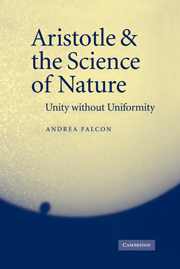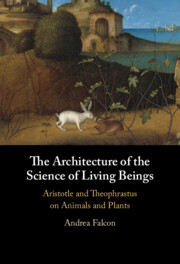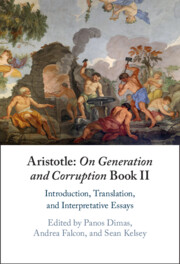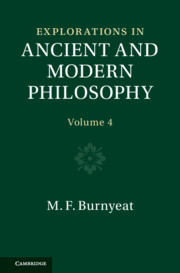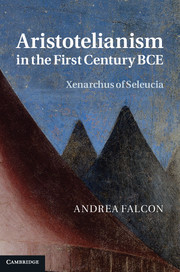Aristotle and the Science of Nature
Andrea Falcon's work is guided by the exegetical ideal of recreating the mind of Aristotle and his distinctive conception of the theoretical enterprise. In this concise exploration of the significance of the celestial world for Aristotle's science of nature, Falcon investigates the source of discontinuity between celestial and sublunary natures and argues that the conviction that the natural world exhibits unity without uniformity is the ultimate reason for Aristotle's claim that the heavens are made of a special body, unique to them. This book presents Aristotle as a totally engaged, systematic investigator whose ultimate concern was to integrate his distinct investigations into a coherent interpretation of the world we live in, all the while mindful of human limitations to what can be known. Falcon reads in Aristotle the ambition of an extraordinarily curious mind and the confidence that that ambition has been largely fulfilled.
- Offers a well-organized and accessible examination of Aristotle's philosophy of nature
- Explores his philosophy in the light of the new departure in Aristotelian scholarship which shows him to be a systematic philosopher
- Places Aristotle's thought in its historical context and looks at it in relation to that of his predecessors and successors
Reviews & endorsements
"...well focused and clearly written book."
-Rosamond Kent Sprague, University of South Carolina, Ancient Philosophy
"Falcon's book will surely stir up discussion. It is an important, provocative, and well-argued work that contributes significantly to the field. Scholars, graduate students, and advanced undergraduates would benefit from giving it a careful and critical reading."
-Scott Rubarth, Rollins College, Journal of the History of Philosophy
Product details
January 2006Adobe eBook Reader
9780511131226
0 pages
0kg
This ISBN is for an eBook version which is distributed on our behalf by a third party.
Table of Contents
- Preface
- Acknowledgements
- List of abbreviations and conventions
- 1. The unity, structure and boundaries of Aristotle's science of nature
- 2. Bodies
- 3. Motions
- 4. The limits of Aristotle's science of nature
- Epilogue
- Bibliography
- Index of names
- Index of passages
- General index.

